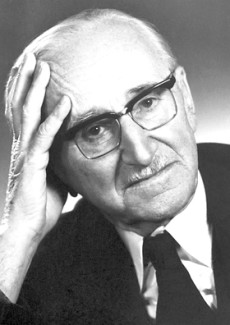Chances Are that You Have No More Expertise in Economics than You Have in Astrophysics
tags: business,economics,Robert Higgs,economists
 Although the statement is commonly attributed to Mark Twain, his friend Charles Dudley Warner was the one who said, “Everybody complains about the weather, but nobody does anything about it.” Regardless of who said it, the statement was and remains fairly accurate.
Although the statement is commonly attributed to Mark Twain, his friend Charles Dudley Warner was the one who said, “Everybody complains about the weather, but nobody does anything about it.” Regardless of who said it, the statement was and remains fairly accurate.
In contrast, we might observe, “Everybody complains about the economy, and a great many unfortunately try to do something about it.” Economic policy is the name given to such attempts by government officials, their consultants, and their contractors. For the general public, economic policy is a tragic matter because regardless of what the man in the street may think, the government’s actions almost invariably make economic life worse than it would have been had the policy makers kept their hands off of it.
Despite a gigantic outpouring of talking, writing, and studying, at least 90 percent of this yammering is worthless, and much of it is positively harmful. Look, I’m not going to lie to you: I’m an economist. I’m not bragging about this professional status; it’s simply a fact. If I were a plumber or a carpenter, I’d admit being one just as readily. Now, tens of thousands of other people also say that they are economists, but scarcely any of them is so in more than a nominal sense. They may have a Ph.D. in economics, yet it remains the case that their ideas about economics are no better than your average crackpot’s. The overwhelming part of what people learn in graduate school in economics is mathematical mumbo-jumbo whose substance boils down—if it boils down to anything, rather than simply evaporating—to what F. A. Hayek called the pretense of knowledge. In short, these “experts” are ill-educated fakers. My best guess is that no more than a couple thousand real economists exist in the entire world, and I would not be surprised if my estimate were too high by a thousand.
Besides the real and counterfeit pros, perhaps several hundred thousand other people purport to possess genuine knowledge about how the economic world works. At least 95 percent of them haven’t a clue. They are charlatans, whether they know they are or not. One has only to surf the Web, read the articles and comments, and consider the character of this froth. It’s almost all crap.
People are generally sensible enough that they do not go about their lives pretending to know about astrophysics at a professional level. They don’t dish out crackpot ideas about the red shift or the events that occurred in the first millionth of a second after the Big Bang. They realize that pretending to know anything much about astrophysics would only make them appear foolish to anyone who heard what they have to say. If only people had enough sense to realize that with very few exceptions, they actually know no more about economics than they do about astrophysics.
Bear in mind that knowing how to run a business successfully, knowing how to write an economics column successfully for a magazine, newspaper, or news site, knowing how to rise in your profession successfully, and knowing a great variety of other things is not at all the same thing as understanding how an economy works. How much better off the whole world would be if in regard to economics everyone settled for thinking locally and acting locally and, above all, never, never inviting politicians and government bureaucrats to do anything to “improve the economy.”